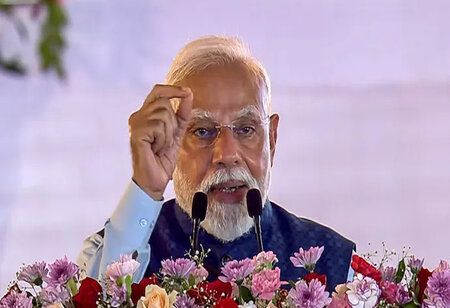By Global Consultants Review Team
 Prime Minister Narendra Modi has announced a sweeping overhaul of the Goods and Services Tax (GST) regime, promising lower taxes, a simplified structure, and reduced compliance burdens. Speaking from the Red Fort on the 79th Independence Day, PM Modi said the government is set to implement “next-generation” GST reforms that will benefit consumers, small traders, and the broader economy.
Prime Minister Narendra Modi has announced a sweeping overhaul of the Goods and Services Tax (GST) regime, promising lower taxes, a simplified structure, and reduced compliance burdens. Speaking from the Red Fort on the 79th Independence Day, PM Modi said the government is set to implement “next-generation” GST reforms that will benefit consumers, small traders, and the broader economy.
A high-level committee has been formed to review the GST system, which was introduced in 2017, and consultations with states are already underway. As part of the first phase of reforms, the government plans to reduce taxes on basic necessities. According to the Prime Minister, this move will directly benefit small businesses and micro, small, and medium enterprises (MSMEs), bring down the cost of living, and inject new energy into the economy. Calling it a “Diwali gift” to the citizens, PM Modi emphasized the government's commitment to making the tax system more efficient and people-friendly.
Shortly after the Prime Minister’s address, the finance ministry issued a statement outlining the key components of the upcoming GST revamp. The reforms will focus on structural changes, rationalising tax rates, and simplifying the overall experience for taxpayers. One of the major changes under consideration is a shift to a two-slab tax structure, comprising standard and merit rates, with special rates maintained only for a limited number of items. The ministry also noted that the end of the compensation cess has created the fiscal space needed to make these long-term changes sustainable within the GST framework.
The proposed reforms are currently being examined by a Group of Ministers (GoM) set up by the GST Council. Once finalized, the changes are expected to be implemented in phases, marking a significant step toward a more streamlined and equitable indirect tax system in India.
We use cookies to ensure you get the best experience on our website. Read more...